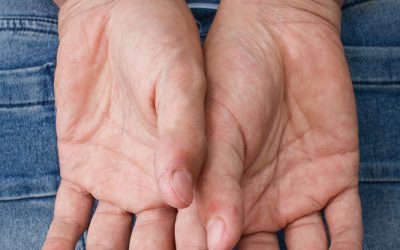27 Apr Is Alcoholism Hereditary? Gateway Alcoholism Treatment
Content
In addition to adequate clinical assistance, different instruments such as questionnaires, surveys, scales, etc. are used, which are very helpful in identifying risk consumption, harmful consumption, and alcoholism. If you are in doubt, here we can help you answer some questions and find out if you need to start your recovery journey. Hugo Bellen, a geneticist at Baylor College of Medicine in Houston, Texas, said the study “lays the foundation for a genetic approach to dissecting the acute, and possibly the chronic, effects” of alcohol in people. Family, twin, and adoption studies have shown that alcoholism definitely has a genetic component. In 1990, Blum et al. proposed an association between the A1 allele of the DRD2 gene and alcoholism.
Underlying mental health issues, including schizophrenia, depression, and personality disorders are closely tied to alcoholism. Addressing these mental health issues properly could mean avoiding an alcoholism problem. If you grew up in a home with an alcoholic parent, you’ve likely faced some form of neglect or abuse. That trauma can reverberate throughout the rest of your life and raise your risk of mental health problems such as alcoholism.
Will I Become an Alcoholic If My Parents Are?
Consequently, many alcoholics may have genetic mutations that enable them to “feel drunker” after abusing alcohol. When they have children, especially with other alcoholics, they pass down this predisposition. Let’s examine how genes (the DNA provided by both of your parents) might influence whether you become addicted to alcohol. Anyone can become an alcoholic, but some may be more predisposed than others. Our center offers these services in resident, partial hospitalization, and intensive outpatient formats.

†Note that the official names of several ADH genes have been changed, and the
literature has been confused by some groups using non-standard names for some of
the genes29.
Get The Latest Updates In Drug & Alcohol Recovery News To Your Inbox
Other genes, including GABRA2, CHRM2, KCNJ6, and AUTS2, may also significantly affect risks. Environmental influences are other components that can lead to alcohol addiction, either singularly or as they interact with other factors. These can be related to childhood or upbringing, family environment, social situations, or with a significant other. Genetic makeup only accounts for half of the alcoholic equation. There are also countless environmental factors (work, stress, relationships) that may lead to alcoholism. There is evidence that heavy episodic (binge) drinking, which results in
exposure of tissues to high levels of alcohol, is particularly harmful81, 87, 88.

Genes can also play a role in the type of treatment we need to overcome alcoholism. Understanding this better can help someone get the type of treatment they need to overcome alcoholism. Many of the existing genetic experiments examining substance abuse and addiction involve mice, which are bred to be good analogues of human genetics. However, there are few long-term studies that have conclusively linked specific genetic traits to humans who struggle with AUD. It is pretty well understood that high-stress environments and trauma are linked to alcohol use disorder, so appropriate therapy to manage these mental and behavioral conditions is extremely important. When the person drinks alcohol, for example, they may feel relaxed and happy compared to the stress they feel when they are sober.
Is there a genetic predisposition to alcoholism?
Some people carry a gene that makes them feel queasy and flushed when they drink. That gene makes alcohol unpleasant, making sober house them less likely to drink too much. Unfortunately, there are no specific tests for the diagnosis of alcoholism.

As an article published on Psychology Today discusses, studies of twins have revealed helpful information about the connection between genes and an alcohol use disorder. In specific, studies that compare fraternal twins and identical twins can be particularly insightful. Among identical twins, their 23 chromosome pairs are exactly the same (i.e., identical twin are monozygotic). Fraternal twins do not have identical chromosome pairs; hence, they look different from each other. If addiction has a genetic basis, it would be expected that identical twins who carried the alcoholic gene or genes involved in addiction would similarly express them (though environmental factors can be involved). The University of Washington and the University of Queensland conducted a large-scale male and female twin study involving 5,889 participants.



No Comments